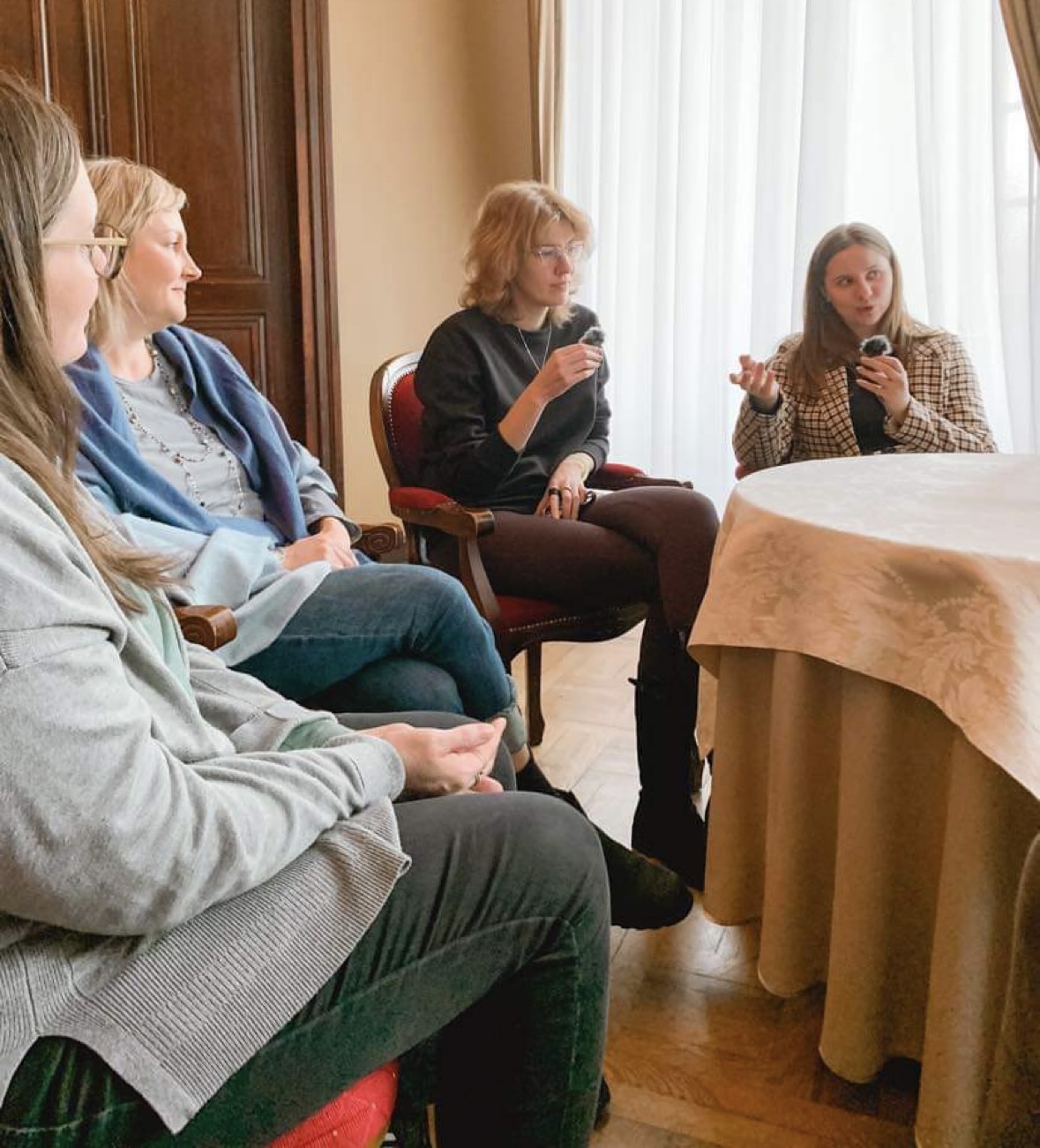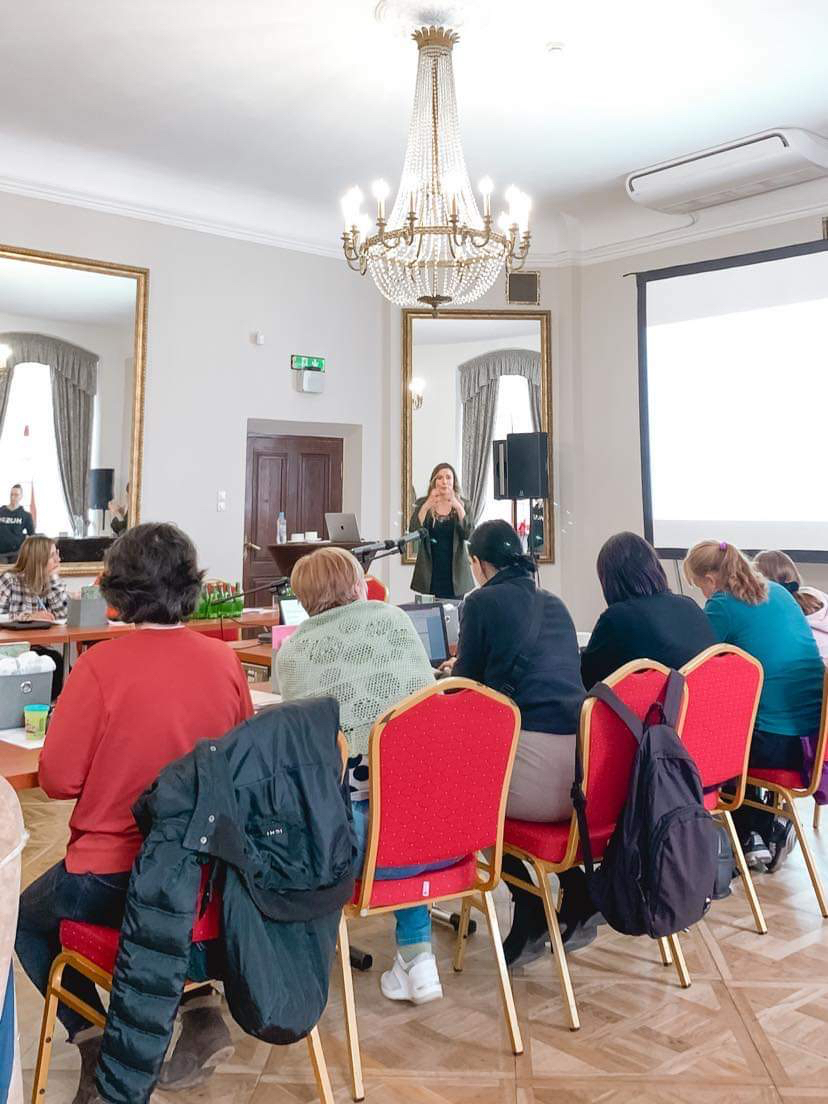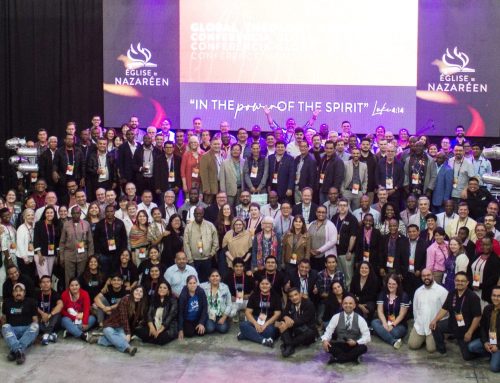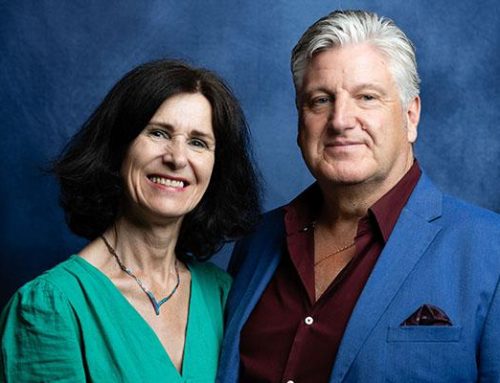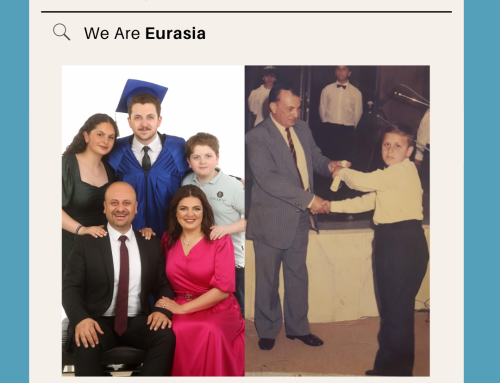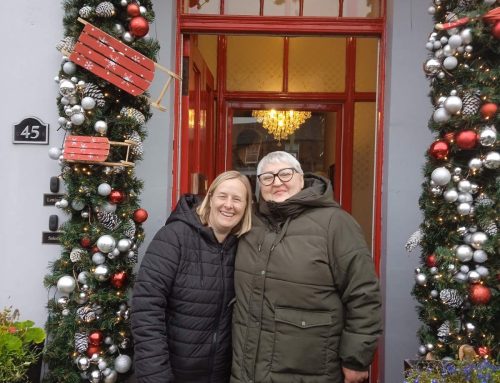Editor’s note: This January, at the Polish/Ukrainian border, a handful of Ukrainians gathered together. The event was a collaboration among the Eurasia North Field, Central Europe Field, Nazarene Compassionate Ministries (NCM), and Global Care Force. Men and women from all backgrounds met to learn more about the effects of trauma. We sat down with several participants during the training.
In early 2022, Pastor Svitlana Kleshchar fled Ukraine at the onset of war. She returned months later to face a new reality, the reality of life lived in constant toxic stress.
“When I came back, I saw that a lot of people are in trauma,” Svitlana says. “And so the same was with me.” She reached out to her colleague at the Church of the Nazarene, Crystal Gibbons, explaining what she was seeing in her own church and community. “We need help, psychological help,” Svitlana shared with Crystal. “Not only food or clothing, but mostly psychological help.”
Svitlana’s experiences dovetailed with other reports coming out of the country. Through a partnership with Global Care Force, the Church of the Nazarene and NCM had been supporting teams of health care providers entering Ukraine. Each month, a team led by Global Care Force’s Roxanne Jones spent time in different cities, providing medical care wherever needed. The reports back were sobering.
“The thing that they were seeing most, overwhelmingly,” Crystal says, “was PTSD, anxiety— major complex trauma. And they didn’t have anything to help with that.”
Armed with this information, Crystal, Svitlana, Roxanne, and a small team of Nazarenes from multiple fields began crafting an intentional, immersive experience that would aim to provide hope and healing to Ukrainians experiencing the toxic stress of war.
“It seemed this overwhelming thing,” Crystal remembers. “Everybody in the country is experiencing trauma in some way. How could we ever make a difference?” But, she adds, “We just decided, let’s try and do something.”
The team got to work, compiling trauma-informed care resources from global leaders in the field. The goal: equip laypeople with a basic understanding of trauma, empowering them to share skills to increase resilience. Svitlana acted as a country coordinator, providing cultural insight and ensuring materials were relevant to a Ukrainian audience. Ukrainian trauma therapist Olya Pavlishina agreed to be an on-site counselor throughout the week. Trauma-informed specialist Kate Reed signed on to present the material and tools. She was thrilled to connect with a faith-based collaboration that prioritized mental health healing.
“It’s been so exciting,” Kate says, “to see the church and people all over the world be a part of this movement to acknowledge the impact of trauma,” Kate says. “We know that if an individual has six or more traumatic experiences before their 18th birthday, that their life expectancy is 20 years less.” But, she adds, what is predictable is preventable. “Let’s build the systems to support them,” Kate says. “We’ve been very intentional that it’s not just a one-time training. It’s a culture shift; it’s a paradigm shift; it’s a new life way. The way we view how trauma affects everything. And we build the support from the beginning.”
With the program material complete, the leadership team turned to selecting its pilot group of trainees. Everyone agreed that the attendee list should include people from diverse backgrounds and educational experiences. The inaugural invitation list included a school principal, chaplain, cafe manager, mother, and college student.
Lyuba Shvets, currently pursuing a degree in psychology, says she was pleased to see a myriad of backgrounds attending the training.
“I’m really grateful for this conference,” she says. “I really believe that even the person who has no education connected to psychology, she or he has the ability to help people.”
The varied guest list was not only intentional, Crystal says, but elemental. Human connection is crucial to the healing process, but people often have an aversion to seeking professional help. Equipping laypeople with tools seemed the natural first step.
“You can’t do it on your own,” Crystal shares. “I think that’s why it was so important to us to bring grandmas and teachers and principals and chaplains. Because we don’t always connect…with a therapist or a counselor.” But, she adds, “I would always sit down with a grandma. And if she can just see me and hear me and recognize that I’m hurting, I think that’s such a powerful tool that we can use, that we all have something that we can bring to the table and use in our real life, our everyday life—not just those that are trained in a school setting.”
Once the program began, trainees had access to one-on-one time with Olya, who specializes in trauma therapy.
“It’s been definitely a joy for me to sit in sessions,” Olya says. “It’s been really neat to see the lightbulbs go off among all of the participants realizing, ‘Trauma of this war is something that impacts me, and not just people out there. And I need to be doing things to take care of myself.’”
Kate agrees. “From the beginning,” she shares, “we wanted to be very intentional that this is not just an information transfer. This is an experience where it’s a place of safety for each one of these participants.” Kate notes that while trainees learned about neuroscience and adverse childhood experiences, they also received tools for self-regulation and small group time for sharing personal struggles.
“You can’t give what you don’t have,” Kate says. “So many people have been sharing their testimonies about how God has been helping their hearts though this time together.”
Lyuba says she was surprised at how quickly everyone processed and put the newly learned skills into practice. “It shows that even four days is enough to learn how to listen to other people,” she says, adding that another trainee inspired her by connecting the words of Jesus to the work of trauma healing. “I really like what [he] mentioned,” she says. “That when Jesus was working with his students, he was saying, ‘I am teaching you, and then you will go into the world and teach others.’ And it’s really quite the same, what we’ve done this week. And now we are going to the world, a light to other people, and it’s really amazing.”
“I believe it’s a time of restoration,” Svitlana adds. “And I’m so glad that we started this program in the midst of the war…that’s what we need right now.”
As for the future, Crystal says the Church of the Nazarene will continue the conversation around trauma and healing as it plans more events. “I think it’s a new conversation that we’re having,” Crystal says. “How do we emotionally help those around us? How do we give the support, the emotional healing that is needed?” She adds that, “it’s not outside of what God wants, it’s exactly what God wants, it’s exactly what Jesus did when he was walking the earth. He didn’t just [physically] heal people or give them food—he really saw them and connected with them and helped them to get to a place of healing. So I think it’s important that we continue that discussion.”
written by Sarah Norris, volunteer based in Poland
